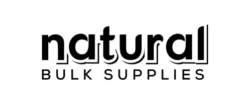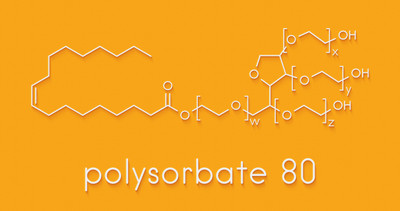Polysorbate 80: The Must - Have Ingredient for Cosmetic Formulations
Posted by Natural BUlk Supplies. on on Apr 17th 2022
Polysorbate 80: The Must-Have Ingredient for Cosmetic Formulations
Polysorbate 80, also known as Tween 80, is a powerhouse ingredient in the world of skincare and cosmetics. It’s a versatile surfactant, emulsifier, and solubilizer that enhances the texture and consistency of formulations, making it easier to create smooth, easy-to-apply skincare and body care products.
If you're working with oils and water in your products, Polysorbate 80 could be your best friend. Understanding what is Polysorbate 80 and how it functions helps formulators build better, stable products from lotions to cleansers.
What is Polysorbate 80?
Polysorbate 80 is a thick, amber-colored liquid that functions as a non-ionic surfactant, meaning it helps mix oil and water. This ingredient is derived from the combination of sorbitol, oleic acid, and ethylene oxide.
- Sorbitol is typically extracted from fruits like apples, cherries, and apricots.
- Oleic Acid is found in vegetable oils such as olive oil, sunflower oil, and grapeseed oil.
Polysorbate 80 is often compared to its counterparts, such as Polysorbate 20 or Polysorbate 60, but the main difference lies in the fatty acid component. In Polysorbate 80, it’s the oleic acid that makes this version particularly adept at emulsifying heavier oils like castor oil, hemp seed oil, and avocado oil.
Why Do We Use Polysorbate 80 in Cosmetics?
The beauty of Polysorbate 80 lies in its multifunctionality. Here’s why formulators love it:
- Emulsifier: Blends oil and water in formulations, ensuring lotions and creams have a consistent texture. With a high Hydrophilic-Lipophilic Balance (HLB) value of 15, it’s particularly effective at emulsifying heavier oils.
- Surfactant: Reduces surface tension, helping oils, dirt, and impurities mix with water for easy rinsing — essential in cleansers and body washes.
- Solubilizer: When dissolving essential oils or fragrances in water-based products, Polysorbate 80 ensures even dispersion, preventing separation.
What’s the Difference Between Polysorbate 20, 60, and 80?
The difference between Polysorbate 20 vs 80 (and 60) lies in the fatty acid composition:
- Polysorbate 20 is derived from lauric acid, ideal for lighter oils often used in facial toners and fragrance solubilization.
- Polysorbate 60 uses stearic acid, making it suitable for thick creams and butters.
- Polysorbate 80, based on oleic acid, works well with heavier oils like castor oil, perfect for deep-conditioning treatments and oil cleansers.
When comparing Polysorbate 80 vs 20, the main difference is viscosity and oil weight compatibility.
Applications of Polysorbate 80 in Skincare
Polysorbate 80 can be found in a wide range of cosmetic and personal care products:
- Oil Cleansers: Emulsifies oils to remove makeup and dirt without greasy residue.
- Conditioning Lotions & Creams: Stabilizes oil-water emulsions for smooth, consistent textures.
- Fragrance Solubilizer: Perfect for incorporating essential oils or fragrance oils in water-based products like toners or body sprays.
If you’re curious about is Polysorbate 80 safe, rest assured — it’s widely used in regulated cosmetic and even food formulations.
FAQs About Polysorbate 80
Is Polysorbate 80 natural?
Although derived partly from natural ingredients like sorbitol and oleic acid, Polysorbate 80 undergoes chemical processing, so it’s considered synthetic.
Is Polysorbate 80 vegan?
Yes. It’s typically vegan when oleic acid comes from plant-based oils. Always verify with your supplier.
Is Polysorbate 80 safe for sensitive skin?
Yes, generally. It’s safe for cosmetic use, but patch-testing is recommended for sensitive skin.
Can I use Polysorbate 80 in food?
Yes. Polysorbate 80 is in foods like ice cream and sauces to stabilize emulsions. It’s approved by the FDA and EFSA as safe.
What is Tween 80 used for?
Tween 80, another name for Polysorbate 80, is used in cosmetics to emulsify oils, in pharmaceuticals to stabilize ingredients, and in foods as an emulsifier.
Conclusion: Why Polysorbate 80 is a Skincare Essential
Polysorbate 80 plays a crucial role in personal care formulations, especially when working with heavier oils that are difficult to mix with water. From creating stable emulsions in lotions to solubilizing fragrances in toners, this ingredient provides both efficacy and versatility.
When sourcing Polysorbate 80 for your DIY skincare or cosmetic line, always choose cosmetic-grade, high-quality polysorbate to ensure safety and consistency.
For professional formulators exploring surfactants, see also:
- Decyl Glucoside – Gentle Plant-Based Surfactant
- Coco Glucoside – Mild Natural Cleanser
- Allantoin – Skin Soothing Ingredient
Additional FAQs
- What is Polysorbate 80 in skincare?
It’s a surfactant and emulsifier that helps mix oil and water in lotions, creams, and cleansers, providing smooth consistency and easy rinse-off. - Is Polysorbate 80 safe to use?
Yes. It’s approved for cosmetic and food use globally and considered safe within standard concentration limits. - Is Polysorbate 80 natural or synthetic?
Partially natural in origin but chemically processed thus classified as synthetic. - Polysorbate 80 vs 20 — which should I choose?
Use Polysorbate 80 for heavier oils and Polysorbate 20 for lighter, water-based products. - 5. Polysorbate 80 is in what foods?
It appears in processed foods like ice cream, sauces, and desserts to stabilize emulsions and improve texture.

